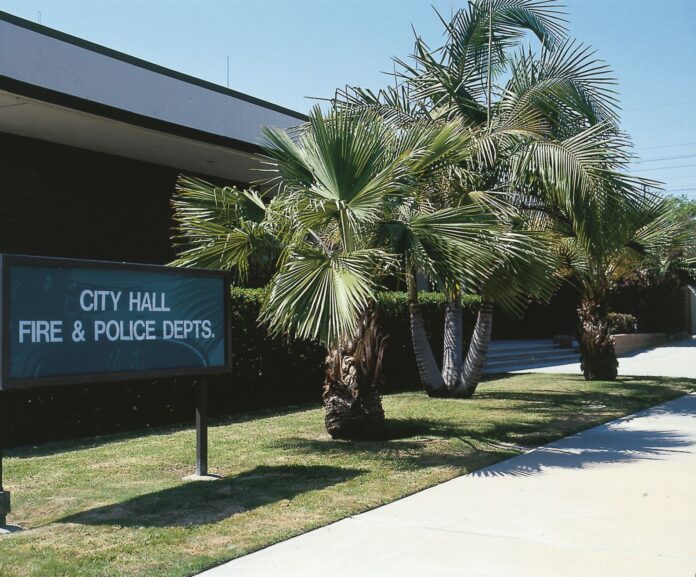By Ronan Jensen
If it was not already clear that the city of La Palma was ready to move on from COVID, its leaders certainly made it so in a May 2 city council meeting that centered around a quartet of topics pointed towards a post-pandemic future. The city’s budget surplus, a proposal to rescind the current water conservation status, a presentation of proposed layouts for pickleball courts, and a discussion on outdoor dining standards were the central subjects brought up in the meeting.
Optimism was in the air when finances were highlighted, with the leaders of La Palma being informed that the city’s reserves had actually grown during the pandemic, and that next year’s draft budget would include a surplus of $454,000.
“We’re in great shape, absolutely. And due to our fiscal policies built up over the years, even prior to me, we’re seeing some of that fruit bear out now,” said Mayor Pro Tem Marshall Goodman.
Following the optimistic budget presentation, a proposal was then brought up to roll La Palma’s Stage Two Water Alert, and Water Shortage Contingency Plan restrictions, back to a less extreme Stage One conservation status. Reasons given for the proposal largely leaned on the generous rainfall California received over the past few months, the snowpack levels across the state, and a number of state-wide drought restrictions lifted by Governor Gavin Newsom earlier in the year. The proposal was apparently very convincing: the city council members voted to pass the measure, and rescind the current Water Alert status, unanimously.
The meatiest discussion of the evening was reserved for the sport of pickleball, and the different layouts the city is currently considering for how and where they will build the necessary courts for it.
Two main proposals were presented to the council before any bids were to be considered from possible contractors; the first was estimated to cost $171,000, and the second would hover somewhere around $259,000. When the topic was opened for questions among the public, concerns of cost and noise were raised without seeming to deflate the overall enthusiasm over the project.
The final of the four main topics was that of outdoor dining standards within the city, a discussion specifically brought up at Mayor Baker’s request. While the city had been very supportive of businesses using exterior spaces to generate as much revenue as possible during the pandemic, it seems the time of laissez-faire attitudes has passed.
“We still have a few remaining, but in my conversations with Mayor Baker, I think her concern is, and I think rightly so, that we should be thinking how we want to handle consistency across the board,” said City Manager Conal McNamara.
“We love outdoor dining, but we just want it to be aesthetically pleasing, safe and welcoming for everyone who wants to come and dine at these establishments,” said Mayor Baker. The council stated that a list of standards would be created and presented at a future date.
Other items discussed during the meeting included an increase in the use of the city’s seal on official items (also requested by Mayor Baker), a presentation by the cancer treatment/research institute City of Hope on their upcoming expansion into Orange County, and a consent calendar item regarding a new electronic sign for Walker Junior High in the Anaheim Union High School District.

